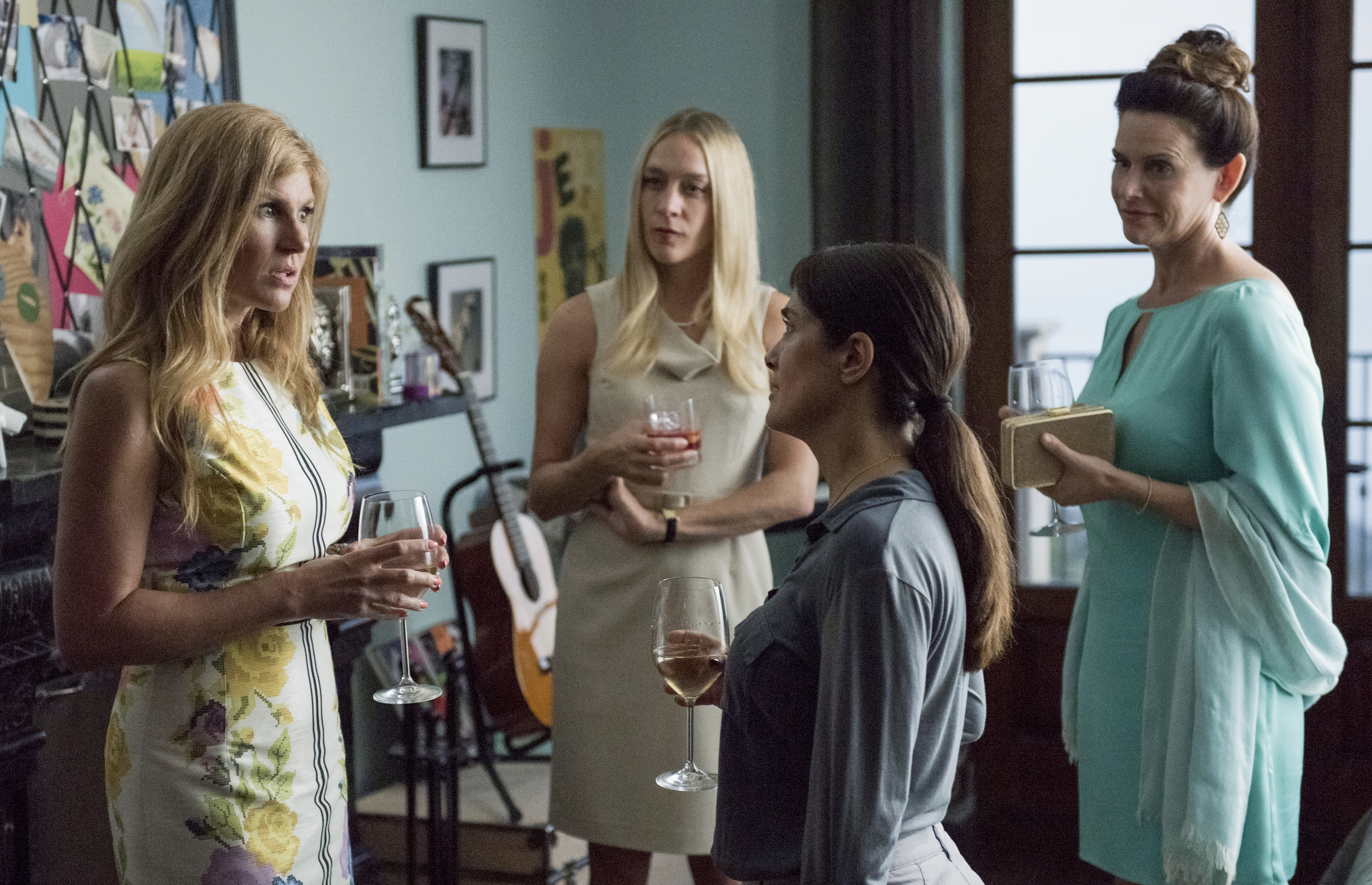There’s nothing like a dinner party gone awry. It’s awkward, uncomfortable, and potentially friendship ending. This is the scenario Miguel Arteta (Cedar Rapids) has brought to life. Salma Hayek stars as Beatriz, a masseuse and homeopathic healer that works in a cancer clinic by day and does work for private clients on the side. After her car breaks down at the house of one of her long-time customers, she is invited to stay for their dinner party until help can arrive. However, she is not their typical house guest. The dinner forces her to come into contact with a local real-estate mogul, played by John Lithgow, who couldn’t be more different from her.
Beatriz immediately stands out from the other dinnergoers. She is plainly dressed and unadorned. She is dwarfed by the other dolled-up, statuesque women and can’t relate to their superficial discussions. It takes several minutes before anyone else even acknowledges her presence. Initially, she is fairly reticent. It’s not until she has had a few glasses of white wine that we get to see her opinions come out. She quickly establishes herself as strong-minded and willing to call out others on their behavior, even to the dismay of her hosts.

Hayek is completely convincing as Beatriz. Despite being an actress known for her looks, she inhabits the role. Her Beatriz is unpretentious and caring. She bonds with animals and claims to literally feel the pain of others. Even as she starts to disrupt the evening, her intentions are selfless and her heart is kind. Hayek’s greatest triumph is that she is able to portray the character without ever becoming preachy. She doesn’t have a holier-than-thou attitude. She only wants to heal and prevent others from being hurt.
The timing of the release brings new, potentially unplanned, meaning to the premise. With the current political climate of the U.S. divided on immigration, what services may or may not constitute a redistribution of wealth, and an ever-growing income disparity, the characters could easily be seen as symbolic with Lithgow’s character representing the far right and Beatriz as the left. However, Arteta leaves most of the allegory up to the viewer, choosing instead to focus on Beatriz’s reaction when confronted with someone who leads a drastically different life with a polar opposite moral compass (if any).
The allegory becomes less about the rich and the poor and more about those that heal versus those that cause suffering. Beatriz sees healing as not only the most noble, but the most difficult occupation and she has devoted her entire life to that cause. Eventually, she wonders if prevention is better than healing. What if she could stop a source of suffering rather than deal with its aftermath? This becomes her albatross. How does she deal with this man whose actions are entirely damaging? By examining how to stay true to your beliefs when faced with your literal antithesis-made-flesh, Arteta lifts Beatriz at Dinner from a simple comedy of manners to an introspective crisis of morality.

4/5 stars.



